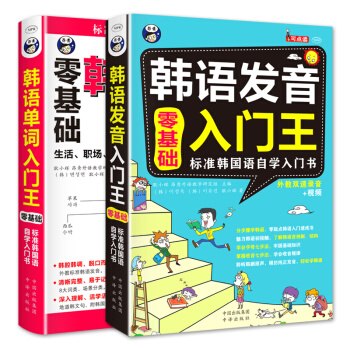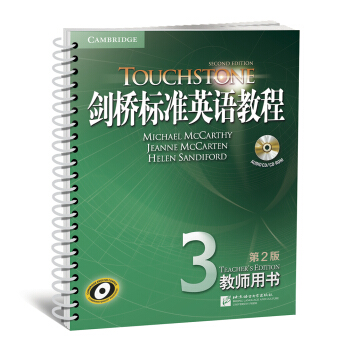![中国历史故事(英文版) [Classical Stories of China Series: History Stories]](https://pic.windowsfront.com/10848706/58ce6924N9f13f1f0.jpg)

具体描述
内容简介
本丛书着重选择在中国流传、广大读者喜闻乐见的经典故事,这些故事不仅展现智慧、品格和灵感,而且有着一定的文学价值。相信国外读者朋友尤其是青少年朋友,在这些美丽故事的感染下,一定会更加了解和热爱中国传统文化。小32开,四色印刷,图文并茂。
Chinese classic stories have inherited and passed on the abundant historic treasury of the Chinese nation that has been accumulated over several thousand years, mirroring the politics, military affairs, culture, folk customs, prevailing moral practices, ideals and interests of ancient China. Through those stories, people can gain an understanding of China's long history and achieve an insight into the profound historical origins of Chinese culture.We have identified stories from the vast number of Chinese classic stories, and complied them into this collection. All stories are illustrated in concise words and expressions, and vivid pictures, which will help the process of reading enjoyable. The series of Classic Stories of China comprises nine books: Scenic Spots Stories, History Stories, Myths Stories, Wisdom Stories, Folk Customs Stories, Ancient Fables, Folk Tales, Idiom Stories, Drama Stories. May those books be your good teacher and helpful friends in learning Chinese culture.
内页插图
目录
CONTENTS
Xia Dynasty King Jie Brings About the Collapse of His Dynasty
King Zhou’s Despotic Rule
Grand Duke Jiang Taigong Does Some Fishing
Fooled by the Lighting of the Beacon Fire
Confucius Travels to Various States
Emperor Qin Shi Huang
The Songs of Chu Used against the Soldiers of Chu
Zhang Qian’s Diplomatic Mission to the Western Regions
Sima Qian Writes ‘The Records of the Grand Historian’
Zhaojun Departs for the Frontier
Cai Lun Makes Paper
Liu Bei Pays Three Visits to Sleeping Dragon Ridge
Emperor Yang of the Sui Dynasty Initiates the Digging of the Grand Canal
The Incident at Xuanwu Gate
Songtsan Gampo and Princess Wencheng
Empress Wu Zetian
The An-Shi Rebellion and the Mutiny at Mawei
Acclaimed Emperor When Hungover and Consolidating Power Using Wine
Li Yu Loses His Kingdom
Yue Fei and the Yue Army
Zhu Yuanzhang, an Emperor from Humble Origin
Zheng He’s Voyages
Nurhaci Founds the Later Jin Dynasty
Zheng Chenggong Reoccupies Taiwan
Cao Xueqin and ‘A Dream of the Red Mansions’
Humen Opium Destruction
Burning of the Old Summer Palace
Zuo Zongtang Recovers Xinjiang
Reform Movement of 1898
The Revolution of 1911
精彩书摘
Li Yu Loses His Kingdom
After the fall of the Tang Dynasty in 907, Five dynasties - the Later Liang (907-923), Later Tang (923-936), Later Jin (936-947), Later Han (947-951 ) and Later Zhou (951-960) - quickly succeeded one another in the north, and ten independent states - Wu, Wuyue, Min, Chu, Southern Han, Former Shu, Later Shu, Jingnan, Southern Tang and Northern Han - were established, mainly in the south.
The Southern Tang, one of the Ten Kingdoms, was founded in 937. The capital was located in Jinling (present-day Nanjing in Jiangsu Province). The state was named Tang (history would refer to it as the Southern Tang). The Southern Tang was conquered in 975 by the Northern Song. It was ruled by three emperors and lasted a total of 39 years.
Li Yu (937-978), the last ruler of the Southern Tang ascended the throne in 961. He is historically known as Li Houzhu (literally meaning the last lord of the Southern Tang).
This fertile land was large and prosperous compared to the other Ten States of that period. However, the three generations of emperors were so mediocre that they wasted all their natural advantages.
Li Yu was a very peculiar monarch. He was idiotic in terms of politics, but an excellent ruler in terms of the arts. He was skilled in calligraphy, music, painting, and poetry, especially the ci form. He has been called the “first true master” of the ci form in the history of Chinese poetry.
After founding the Song Dynasty, Zhao Kuangyin launched successive military expeditions against the neighboring kingdoms. Several small states were easily conquered, so Li Yu began to panic. His first plan was to pay large tribute to the Song court so as to maintain his power. Then he wrote a letter to the Song emperor, saying that he was willing to discard the title of “Southern Tang” and to term himself “lord of the regions south of the Yangtze River.” However, his proposals did nothing to change Zhao Kuangyin’s determination to unify all China under the Song banner.
In 974, Song Emperor Taizu Zhao Kuangyin sent 100,000 troops to attack the Southern Tang by water and land. Arriving at the banks of the Yangtze River, the Song Dynasty armies prepared to cross the river by building a floating bridge in order to attack Jinling. Hearing this news, Li Yu did not believe it, and continued drinking with his ministers.
The Song Dynasty armies crossed the Yangtze River and quickly arrived at the gates of Jinling. At that time Li Yu was chanting sutras and praying with the monks and Taoist priests in the palace. On the second day, he went up to the gate tower to make his rounds. Immediately he saw the banners of the Song Dynasty armies all around his capital. He immediately sent a special envoy to the capital of the Song Dynasty to sue for peace.
The peace talk failed and the two armies fought. The Southern Tang army was annihalated. Before the Song army could conquer his capital, Li Yu piled up a lot of straw in the palace. He planned to set fire to it and take his own life, but in the end he couldn’t go through with it. He was taken captive by the Song Dynasty armies. The Southern Tang state ceased to be.
Li Yu was marched off to the capital of the Song Dynasty and was made the Marquess of Wei Ming (literally, the Marquess of Disobeyed Edicts) by Song Emperor Taizu.
Li Yu became a prisoner. However, his best-known poems were composed during the years after the Song formally ended his reign in 975. Li’s works from this period dwell on his lament for his lost kingdom and the pleasure it had brought him.
Song Emperor Taizu Zhao Kuangyin passed away in 976. Li Yu was poisoned by the Song emperor Taizong Zhao Jiong (namely Zhao Kuangyi) in 977.
前言/序言
Preface
China has written history of about 5,000 years. “Chinese history” here refers to the part of the Chinese history form the Xia Dynasty in 2070 BC until the Revolution of 1911 that overthrew the Qing Dynasty (1644-1911), China’s last feudal dynasty.
During the prolonged period of time, the Chinese created a splendid civilization, and Chinese achievements made during the period in socio-economic development exerted great influence on the world as a whole.
The long history has given birth to many historical figures and stories related to them. Many Chinese idioms, slangs and sayings are rooted in them. They become the core of China’s ancient civilization, and helped enrich the Chinese language, ideology and the way the Chinese behave.
Stories taken in the book are few in number, but are expected to be good enough to help readers learn more of China.
用户评价
我对古代的社会生活场景特别感兴趣,这往往是历史书中最容易被忽略,却也最能体现时代特色的部分。我翻阅了几页试读内容,希望能看到一些关于普通百姓日常生活的描摹。例如,在唐代,一个长安城的商人是如何组织他的贸易路线的?宋朝市民阶层在瓦舍勾栏里观看的“说书”内容究竟是些什么?明代江南士绅的园林生活是如何体现他们对“雅”的追求的?我希望这本书不仅仅是讲述帝王将相的宏大叙事,而是能通过一些生动的“微历史”侧面,将历史的温度还原出来。如果它能详细描绘出古代节日习俗的细节,或者某一特定时期(比如春秋战国时期百家争鸣的氛围下)知识分子群体是如何交流和辩论的,那无疑会大大增加阅读的乐趣和代入感。历史不应该只是冷冰冰的记录,它应该是一幅幅可以“走进去”的生活画卷。
评分这部《中国历史故事(英文版)》的装帧设计真是一绝,封面那种水墨晕染的质感,一下子就把人拉回了那个古老的东方世界。内页的纸张选择也十分考究,摸上去很有分量感,油墨的印刷清晰度极高,即便是那些复杂的古代官职名称或地理方位,也能看得一清二楚。我尤其欣赏它在排版上所下的功夫,字体大小适中,段落间距合理,阅读起来毫不费力。虽然我还没深入到故事内容,但光是翻阅这本书的物理体验,就已算是一种享受。它不像有些历史读物那样板着面孔,而是带着一种对艺术的敬畏感来呈现历史的载体。我期待它在内容上也能达到这种高水准,毕竟好的故事需要一个同样体面的“舞台”来展现。如果内容真的如封面所预示的这般精美,这本书完全有资格摆在我书架最显眼的位置,作为一件兼具阅读与收藏价值的艺术品。它成功地传达了一种信息:阅读中国历史,可以是一件非常优雅的事情。
评分这本书的定价相对较高,这让我对它的附加值产生了更高的期待。我注意到书名中带有“系列”的字样,这暗示着出版方可能有一个长远的规划,试图构建一个完整的中国历史故事英文阅读体系。我非常关心这个系列在学术严谨性与大众可读性之间的平衡点。出版方是否咨询了相关的历史学专家进行校对?注释体系是否完善?如果书中引用了某些史料,是否提供了清晰的来源标注?虽然我是一个普通读者,不需要过于详尽的脚注,但对于一些关键概念或历史典故,清晰的背景说明是必不可少的,这能确保读者不会因为缺乏上下文知识而产生误解。一个优质的系列丛书,其价值不仅在于单本书的质量,更在于它所构建的知识体系的完整性和可靠性。我希望这本作为开篇之作,能展现出足够的专业水准,让我有信心追随这个系列继续深入探索中国的历史长河。
评分作为一名对东方哲学和传统文化有浓厚兴趣的学习者,我选购这本书时,最看重的是它对历史叙事角度的拿捏。我希望它能超越单纯的年代罗列和枯燥的事件记录,而是能挖掘出那些深刻影响了中华文明进程的思维模式和价值取<bos>。比如,在讲述某个朝代的兴衰时,书中是否能够巧妙地穿插介绍当时文人士大夫阶层所遵循的“士”的精神?在描述重大战役的背景时,是否能触及到儒家“仁义”思想与实际军事策略之间的张力?我期待它能提供一个有深度的解读框架,而不是仅仅停留在“谁打败了谁”的表层叙事。如果它能用英文清晰地阐释清楚“天命观”是如何影响古代君权合法性的,那才算真正抓住了中国历史的精髓。坦白说,很多西方视角下的中国历史解读常常会忽略这些微妙的文化内核,所以这本书如果能在这方面有所建树,那它的价值就不可估量了。
评分我最近开始系统性地学习英语,希望能找到一些既能提升词汇量,又能接触到有趣文化内容的读物。这本书的英文版本恰好吸引了我。我观察了一下目录结构,感觉它似乎采取了一种比较灵活的编年史或主题式叙事,而非那种严格按照时间线索推进的教科书模式。这种叙事方法对于非专业读者来说是非常友好的,它能让你在不同的历史片段间自由切换,避免陷入长篇大论的疲劳感。更重要的是,我非常好奇它如何处理那些跨越千年的经典人物形象的翻译和解读。比如,如何用地道的英文去描绘“诸葛亮的鞠躬尽瘁”或者“苏东坡的旷达与悲凉”?这种语言转换的难度极高,需要译者具备深厚的双语功底和文化敏感度。我希望这本书的英文表述是流畅、自然,甚至带有一点文学性的,而不是那种生硬的、直译过来的“中式英语”。如果它能让一个从未接触过中国历史的英语母语者也能体会到其中蕴含的情感张力,那它就成功了。
评分物流速度非常快。书还没有看。
评分内容简洁
评分纸张、印刷、内容都不错,值得推荐购买
评分性价比很高 书是正版的,之前有过担心滴。内容还行吧,尽管我没觉得有多充实。冲着是名人写的,书的质量还行就不挑剔了。卖家发货挺快的,第二天就收到了。书还是不错的,精装外壳,发货速度真心的快,评价晚了,书不错,应该再早点看的。推荐看,只是粗浅认识了一下,已经感觉到自己逻辑思维更加清晰。好书,受益匪浅,如果不好好研究一下此书,绝对是人生一大遗憾。这天女友打电话问我借本书,说她写作需要参考,我说我家没有,但我可以帮你找。我一边接电话一边就上网搜索,很快找到,立马告诉她网上京东有。她说我不会在网上买书啊。我嘲笑她一番,然后表示帮她买。很快就写好订单写好她的地址发出去了。果然第二天,书就送到她那儿了。她很高兴,我很得意。过了些日子,我自己又上网购书,但下订单后,左等右等不来。以前从来不超过一星期的。我正奇怪呢,刘静打电话来笑嘻嘻地说,哎,也不知道是谁,心眼儿那么好,又帮我订了好几本书,全是我想要的,太好了。我一听,连忙问她是哪几本?她一一说出书名,晕,那是我买的书啊。原来我下订单的时候,忘了把地址改过来,送到她那儿去了。这下可把她乐死了,把我先前对她的嘲笑全还给我了。不过京东送货确实很快。我和女友都很满意。好了,废话不说。|好了,我现在来说说这本书的观感吧,坐得冷板凳,耐得清寂夜,是为学之根本;独处不寂寞,游走自在乐,是为人之良质。潜心学问,风姿初显。喜爱独处,以窥视内心,反观自我;砥砺思想,磨砺意志。学与诗,文与思;青春之神思飞扬与学问之静寂孤独本是一种应该的、美好的平衡。在中国传统文人那里,诗人性情,学者本分,一脉相承久矣。现在讲究“术业有专攻”,分界逐渐明确,诗与学渐离渐远。此脉悬若一线,惜乎。我青年游历治学,晚年回首成书,记忆清新如初,景物历历如昨。挥发诗人情怀,摹写学者本分,意足矣,足已矣。现在,京东域名正式更换为JDCOM。其中的“JD”是京东汉语拼音(JING DON|G)首字母组合。从此,您不用再特意记忆京东的域名,也无需先搜索再点击,只要在浏览器输入JD.COM,即可方便快捷地访问京东,实现轻松购物。名为“Joy”的京东吉祥物我很喜欢,TA承载着京东对我们的承诺和努力。狗以对主人忠诚而著称,同时也拥有正直的品行,和快捷的奔跑速度。太喜爱京东了。|给大家介绍本好书《我们如何走到这一步》自序:这些年,你过得怎么样我曾经想过,如果能时光穿梭,遇见从前的自己,是否可以和她做朋友。但我审慎地不敢发表意见。因为从前的自己是多么无知,这件事是很清楚的。就算怀着再复杂的爱去回望,没准儿也能气个半死,看着她在那条傻乎乎的路上跌跌撞撞前行,忍不住开口相劝,搞不好还会被她厌弃。你看天下的事情往往都是一厢情愿。当然我也忍住了各种吐槽,人总是要给自己留余地的,因为还有一种可能是,未来的自己回望现在,看见的还是一个人。好在现在不敢轻易放狠话了,所以总算显得比年轻的时候还有一分从容。但不管什么时候的你,都是你。这时间轴上反复上演的就是打怪兽的过程。过去困扰你的事情,现在已可轻易解决,但往往还有更大的boss在前面等你。“人怎么可能没有烦恼呢”——无论是你初中毕业的那个午后,或者多年后功成名就那一天,总有不同忧伤涌上心头:有些烦恼是钱可以解决的,而更伤悲的是有些烦恼是钱解决不了的。我们曾经在年少时想象的“等到什么什么的时候就一切都好起来了”根本就是个谬论。所以,只能咬着牙继续朝前走吧。
评分物美价廉,质量上乘,值得购买。
评分有点太难了,对于小学生来说
评分物美价廉,质量上乘,值得购买。
评分东西确实很好!!!!
评分东西确实很好!!!!
相关图书
本站所有内容均为互联网搜索引擎提供的公开搜索信息,本站不存储任何数据与内容,任何内容与数据均与本站无关,如有需要请联系相关搜索引擎包括但不限于百度,google,bing,sogou 等,本站所有链接都为正版商品购买链接。
© 2026 windowsfront.com All Rights Reserved. 静流书站 版权所有



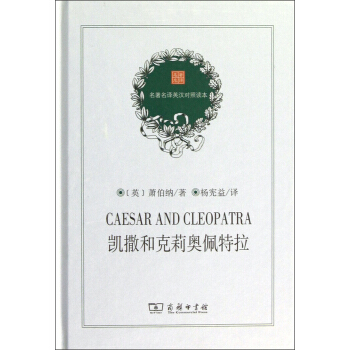
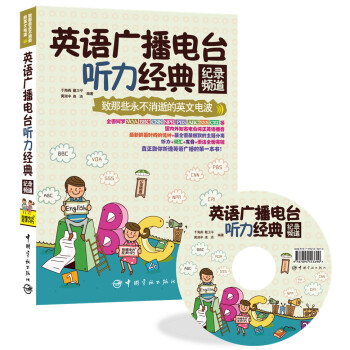
![宝宝喜爱的英语卡片书:童装 颜色 [0-2岁] [English Cards for Children:Clothes and Colours] pdf epub mobi 电子书 下载](https://pic.windowsfront.com/11408397/rBEhUlMUH1kIAAAAAAQcCreFYRkAAJXiAADDzAABBwi442.jpg)
![新概念英语(青少版)同步一课一练(2A) [Junior New Concept English] pdf epub mobi 电子书 下载](https://pic.windowsfront.com/11416424/5732d32bNa3f9c22e.jpg)
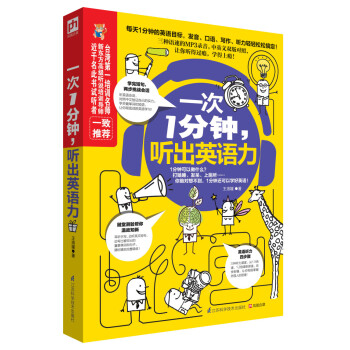
![英语歧义词句详解(英语语法学习必备用书) [A Detailed Explanation of English Ambiguous Expressions] pdf epub mobi 电子书 下载](https://pic.windowsfront.com/11561190/544a12f7Naf2fed75.jpg)
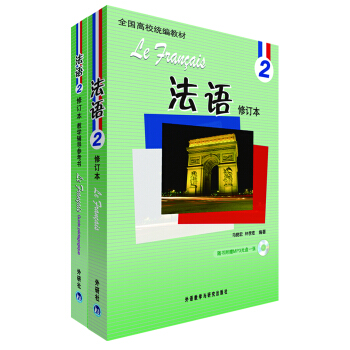
![伟大的思想:葛底斯堡演说(英汉双语) [The Gettysburg Address] pdf epub mobi 电子书 下载](https://pic.windowsfront.com/11751818/55e3c351N9451687f.jpg)


![国际汉语教学 汉字教学方法与技巧 [International Chinese Teaching: Methods And Techniques For Teaching Chinese Characters] pdf epub mobi 电子书 下载](https://pic.windowsfront.com/11789307/56283755N4d42aebe.jpg)

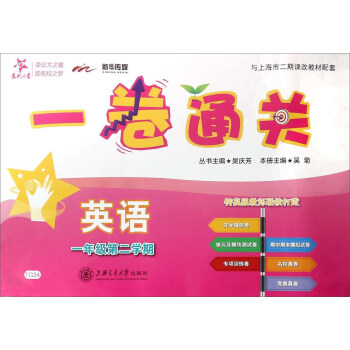
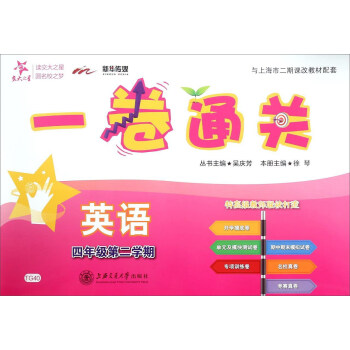
![德语国家国情文化:学生读本(附练习册) [Dreimal Edutsch] pdf epub mobi 电子书 下载](https://pic.windowsfront.com/11886651/56fa4bf5Nffdfe381.jpg)
